Russia election: Kremlin queries legality of boycott call
- Published
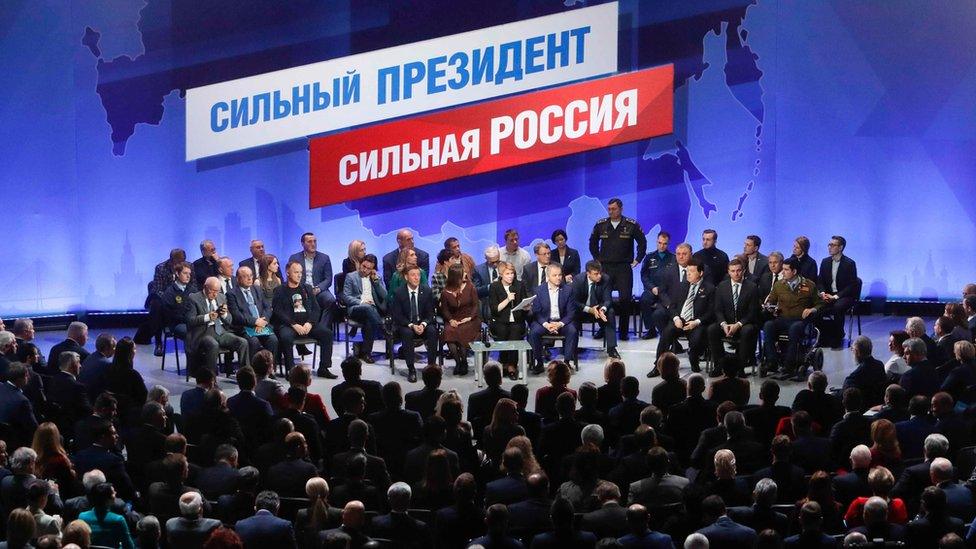
Mr Putin's supporters met in Moscow under the slogan "Strong president, strong Russia"
The Kremlin says a call by opposition leader Alexei Navalny for a boycott of the 2018 presidential election needs to be checked to see whether it is legal.
Mr Navalny's comments came after he was barred from competing in next March's vote because of a corruption conviction which he says is politically motivated.
The Kremlin's suggestion could be a hint of potential repercussions for Mr Navalny, correspondents say.
Meanwhile, President Vladimir Putin has been formally nominated as candidate.
Athletes, musicians, celebrities and others met in Moscow to form the 500-strong support group that independent candidates like Mr Putin require to be registered.
Mr Putin did not turn up to his nomination event with the Kremlin saying his agenda was too busy for him to attend.
He is expected though to personally submit his paperwork to the Central Electoral Commission for approval in the coming days, a step seen as a mere formality.
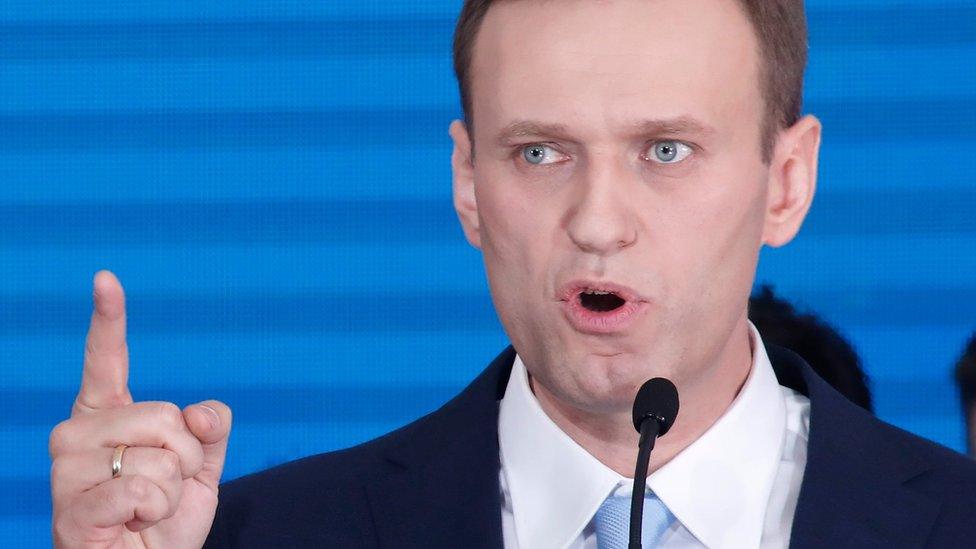
Mr Navalny has threatened to organise protests across the country
The commission barred Mr Navalny's candidacy on Monday, leaving Mr Putin with no serious challenger for the election.
Mr Navalny said the decision would deny millions of Russians their vote, and called for a "strike by voters".
Earlier on Tuesday, Kremlin spokesman Dmitry Peskov said: "The calls for a boycott will require scrupulous study to see whether or not they comply with the law."
Declining to comment on the commission's decision to remove Mr Navalny from the race, he rejected allegations that it could undermine the vote's legitimacy.

A hint of potential troubles
By Sarah Rainsford, BBC News, Moscow
This was a hint that there may still be trouble ahead for Alexei Navalny. There is no doubt that Vladimir Putin is the out-and-out favourite in this election. But after 18 years in power, his team is struggling to inject energy into a predictable process.
They want a large turnout, to give Mr Putin the strongest possible mandate. So Mr Navalny aims to cut into that with his boycott, arguing that without Mr Putin's most popular, and strongest critic, these elections are fake and a farce.
But Mr Putin is unlikely to be too worried - unless the boycott really grows. He has already painted Mr Navalny as a man with no positive programme, and one who threatens to plunge the country into chaos.
The president's own message is of stability and strength; two reasons why many Russians are backing him for another six years in power.

Known for his anti-corruption campaign and protests against Mr Putin, Mr Navalny, 41, was given a five-year suspended sentence in a retrial this year on embezzlement charges.
The European Union said Mr Navalny's removal cast "serious doubt" on the election.
Mr Putin, 65, is seeking a fourth term that would see him become the longest-serving Russian leader since Joseph Stalin. He still retains a massive approval rating and is almost certain to ease to victory in the election.
He is running as an independent candidate rather than from the ruling United Russia party. Mr Putin has not explained the decision, but experts say it could be a way to distance himself from the party's low approval ratings.
- Published16 February 2024
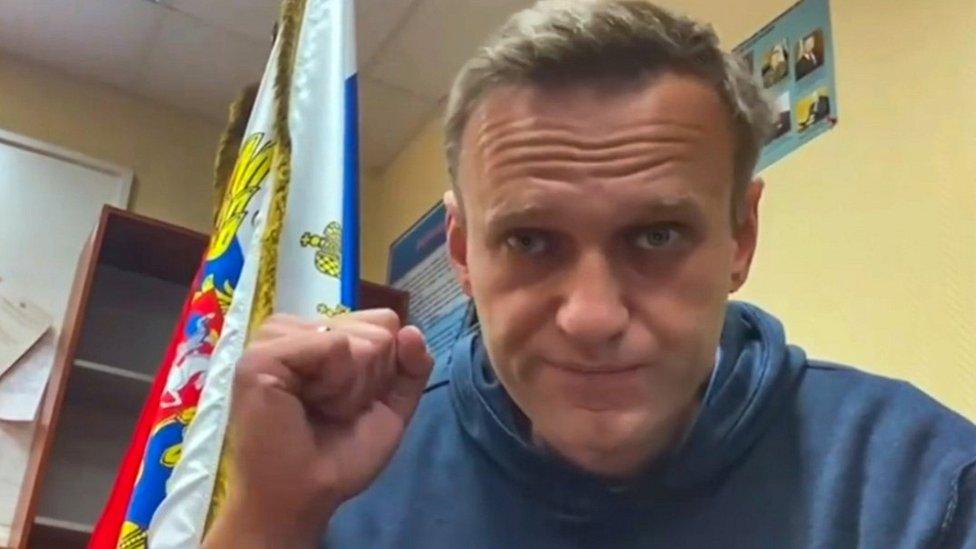
- Published17 March 2024
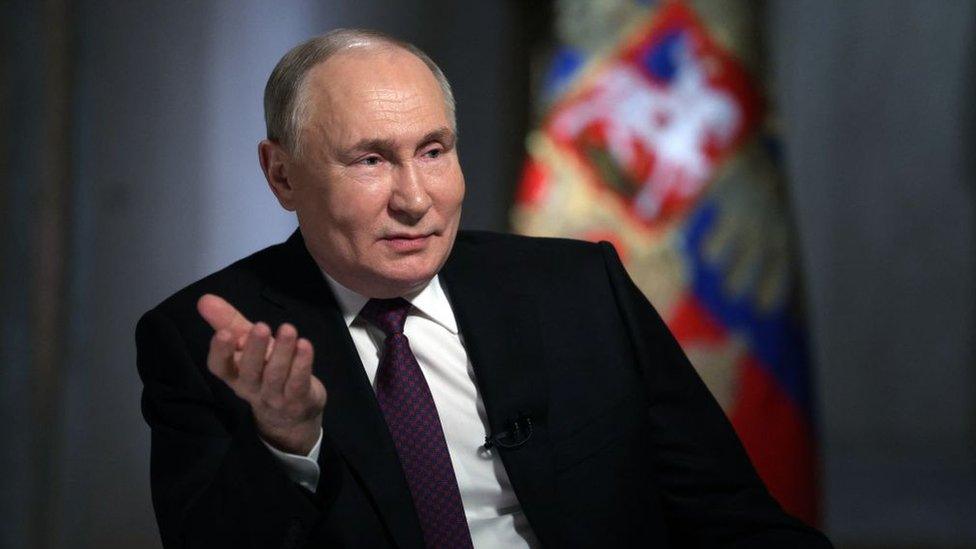
- Published25 December 2017
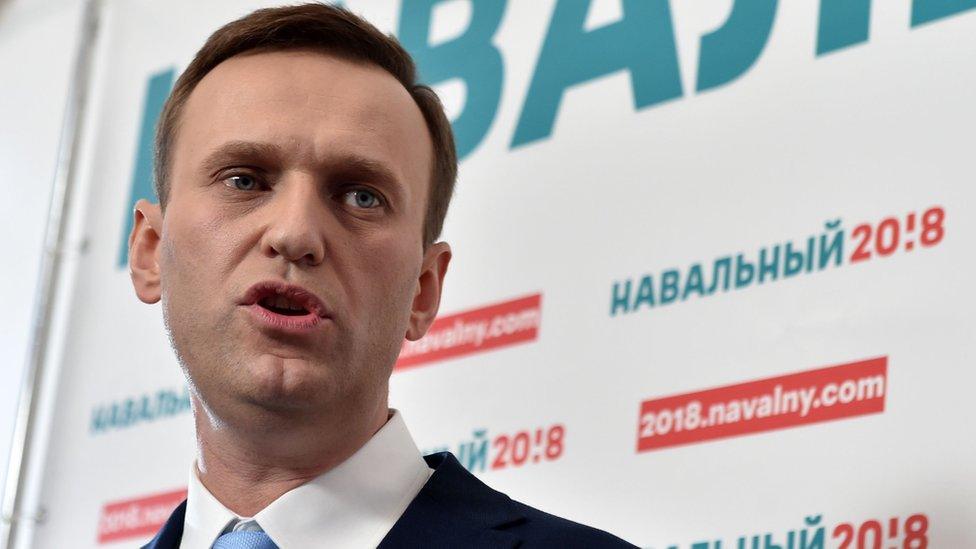
- Published6 December 2017
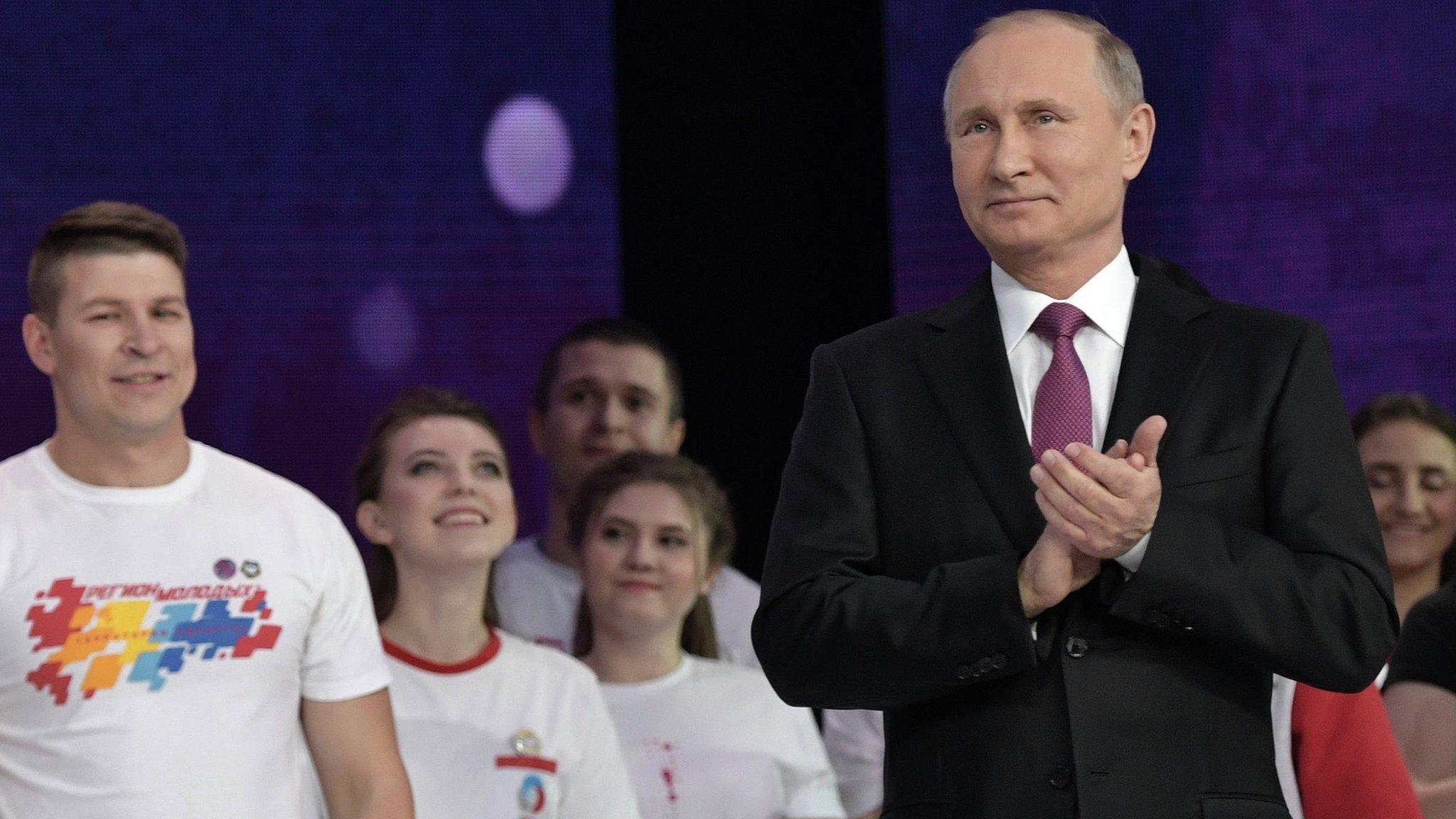
- Published2 February 2017
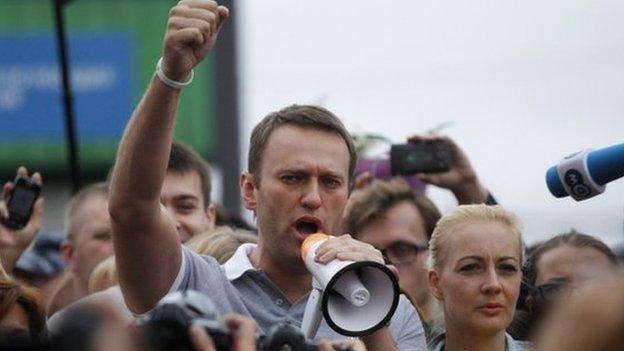
- Published25 March 2024
